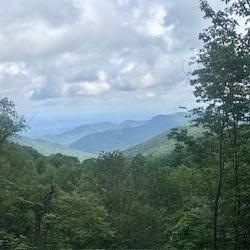Churches need more spirituality, less prescription
In a recent post on a creedal faith (https://www.patheos.com/blogs/loveopensdoors/2024/04/a-creedal-faith-after-deconstruction/ ), I offer these thoughts on deconstruction:
We are hearing a lot of chatter and seeing a lot of literature these days concerning the act of deconstruction, especially from a faith perspective. Indeed, it seems that the number of people who identify as not religiously affiliated or “nones” is increasing.
The idea of asking questions about our faith is not a new phenomenon nor is the idea of deconstruction. The philosopher Jaques Derrida is often linked to this modern concept.
According to Pragati Kalive (https://www.sociologygroup.com/deconstruction-theory/ )
Deconstruction theory, derived from the works of philosopher Jacques Derrida, is a theory of literary analysis that opposes the assumptions of structuralism. Its primary purpose is to discern the relationship between text and meaning (Kalive, 2021)
Deconstruction for Derrida was a means to explore the relationship between text and meaning. His work “asserts that meaning is not static and instead continually evolves and varies across time and space”. (Kalive, 2021) This is important linguistically because language is always changing and meaning also changes year to year. For example, the word gay meant something completely different in 1904 than it does in 2024. In biblical studies, contextual criticism is important, and one must consider the socio-political and historical context in which something was written.
In this post, I want to talk about reconstruction through the lens of a faith without religion for a moment to focus on the development of a healthy spirituality.
Early Desert Contemplatives
In the Christian tradition, during the 4th century, common era, we saw the desert “father” (there were women too) movement. In fear of reprisal and persecution, early Christians took to the “desert” to pray and think or meditate on the scriptures. The Western order of the Benedictines and the Rule of Saint Benedict comes out of this early tradition.
The first person attributed to the monastic dessert movement was Paul of Thebes, but it was Anthony the Great who launched the movement that became the Desert Fathers. It was believed that around 270 CE Anthony heard a Sunday sermon stating that perfection could be achieved by selling all of one’s possessions, giving the proceeds to the poor, and following Jesus. He followed the advice and made the further step of moving deep into the desert to seek complete solitude (Wikipedia – https://en.wikipedia.org/wiki/Desert_Fathers ).
The early desert parents can teach us a lot about the importance of spirituality within religion. “Their journey into the desert was a movement toward growing intentional awareness of God’s presence and recognizing that worldly pleasures bring little long-term satisfaction. Their aim was to experience God in each moment and activity by reducing their needs and committing themselves to the discipline of regular prayer and self-inquiry.” (Valters Paintner, 2020)
Hard Stop Affirmations
One may read my heading of this essay and think that I have lost my religion. I have not. As I have matured in my faith, I have tended to focus on what I feel is most important in one’s faith experience, relationships and cultivating a healthy and mature spirituality.
One can recite all the scripture passages and eloquently pray all the “just Jesus” prayers all day, but if they do not know the depth of their spiritual being, they are simply empty vessels with no cultivated awareness. Indeed, I feel we all need to have deep mystical experiences and regular spiritual awakenings to truly be alive with the Holy Spirit. It is for this reason that I never took the time to memorize scripture.
I still affirm the Apostles and Nicene Creeds and the theologies around them, though for many of the people I talk to on most days, they could care less. It is the relationship aspect that the “nones” are looking for.
For the Christian church today, it’s leaders need to lean into the pulse of the “nones” and the growing contingent of “spiritual but not religious” seekers among them. (See this article from The Atlantic and this article from Psychology Today
Incorporating Spirituality into Religion
Churches can still maintain their orthodoxy and still help seekers cultivate a deeper relationship with thier spiritual selves
5 Ways to find a sense of spirituality within a religion
-
- Consider the Contemplative Traditions
- Consider the Mystical Traditions
- Consider Pluralism
- Consider Deep Ecumenism
- Learn how to foster inner peace by taking time to Center Yourself
Let’s explore these briefly.
Every religious tradition has a contemplative and alongside of the contemplative, a mystical tradition. Here, we find seekers who dig deep into their tradition, often thinking deeply about spiritual concepts and their relationship with the divine, however the divine is perceived. Here I not only think about the Christian monastics and mystics, but notably Rumi of the Suffi tradition within Islam and Buddha of the Buddhist tradition.
Diana Eck and Matthew Fox are the two names that come to mind when I think of pluralism and Deep Ecumenism.
Professor Eck is the founder of the Pluralism Project at Harvard Divinity School (https://pluralism.org/dr-diana-eck ). According to the Harvard website, the Pluralism Project is “an ongoing research effort, the Pluralism Project studies and interprets religious diversity and interfaith relations in the United States”. I have taught from this project in my World Religions class and have found it to be a powerful and easily accessible bridge to learning about the different religious traditions of the world.
Matthew Fox made us aware of the concept of deep ecumenism when he introduced the world to “One River, Many Wells: Wisdom Springing from Global Faiths” in 2004. In this text, Fox points out that “we get to the core of religion by going to the heart experience, not by dwelling on doctrines that so easily divide even within religious traditions (https://www.matthewfox.org/ ).
To center ourselves then, sometimes means doing work outside of our faith and spiritual tradition. I am often writing on the spiritual practice of you. The spiritual practice of you sometimes starts with going to therapy and working out past hurts, worries and doubts. In a world of broken systems, meaning is not being made. People often turn externally for validation without really affirming the goodness within them. Therapy can help with this. Once one is at a place where they feel emotionally safe, then they can begin deeper learning about their spiritual selves.
Currently, the Christian church is part of this broken system. It makes meaning by prescribing a faith that is often out of touch with the needs of the seekers who are looking for meaning. We need to consider a new theology, a new understanding of humanity and openness for exploration that cannot be found within a prescribed faith.
Reference:
Rohr, R. (2015, October 12). The Two Halves of Life. Retrieved April 28, 2024, from https://cac.org/daily-meditations/two-halves-life-2015-10-12/
Valters Paintner, C. (2020, January 31). The desert mothers and fathers showed all life is sacred. The Center for Action and Contemplation. Retrieved April 29, 2024, from https://uscatholic.org/articles/202001/discover-the-sacredness-of-life-with-the-desert-mothers-and-fathers/












